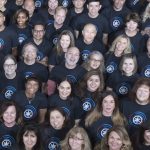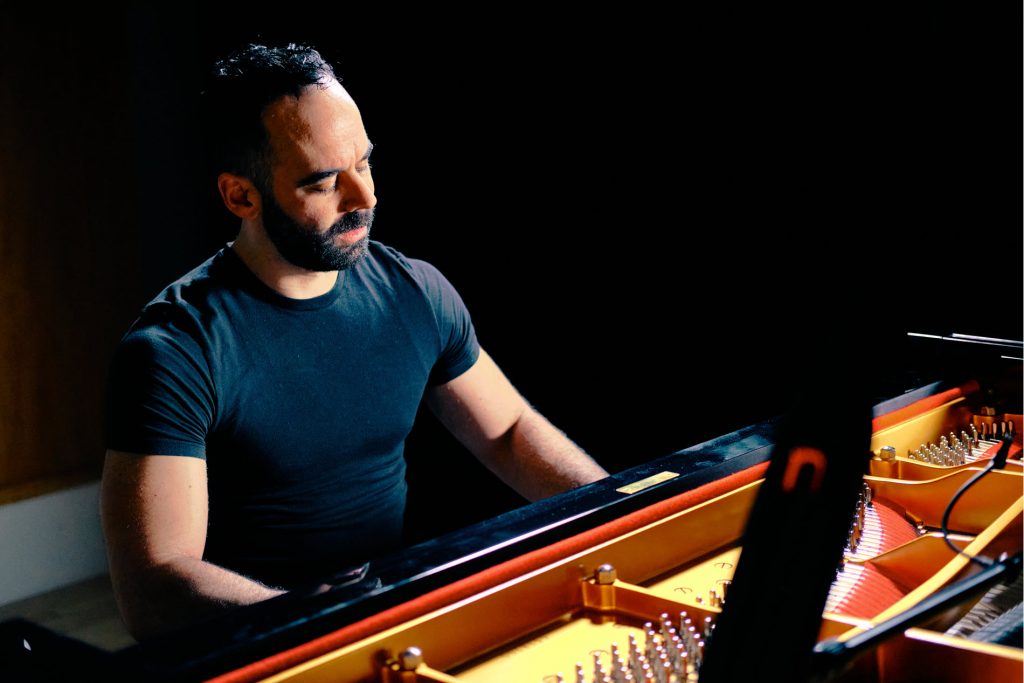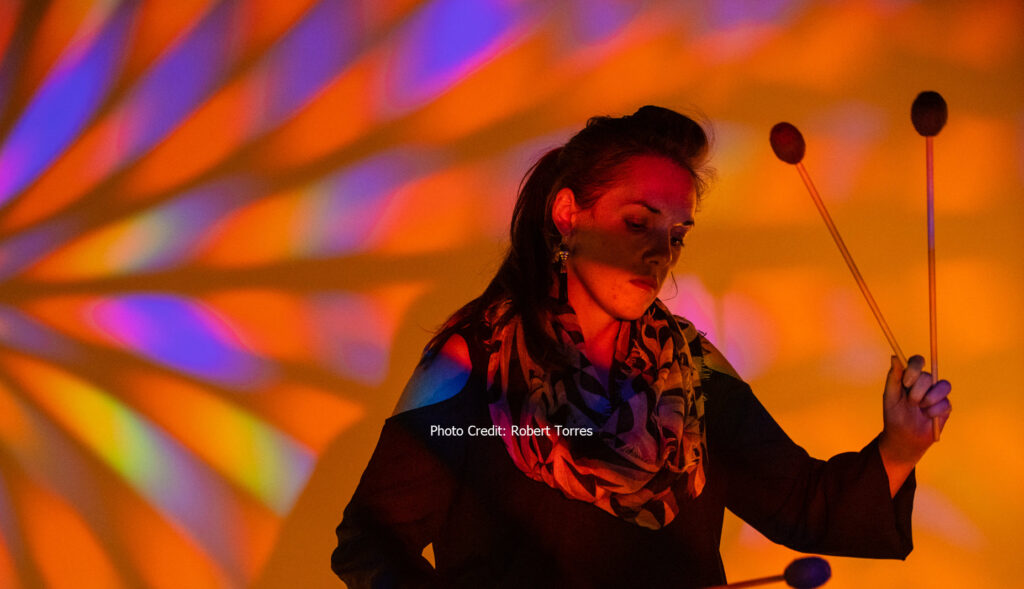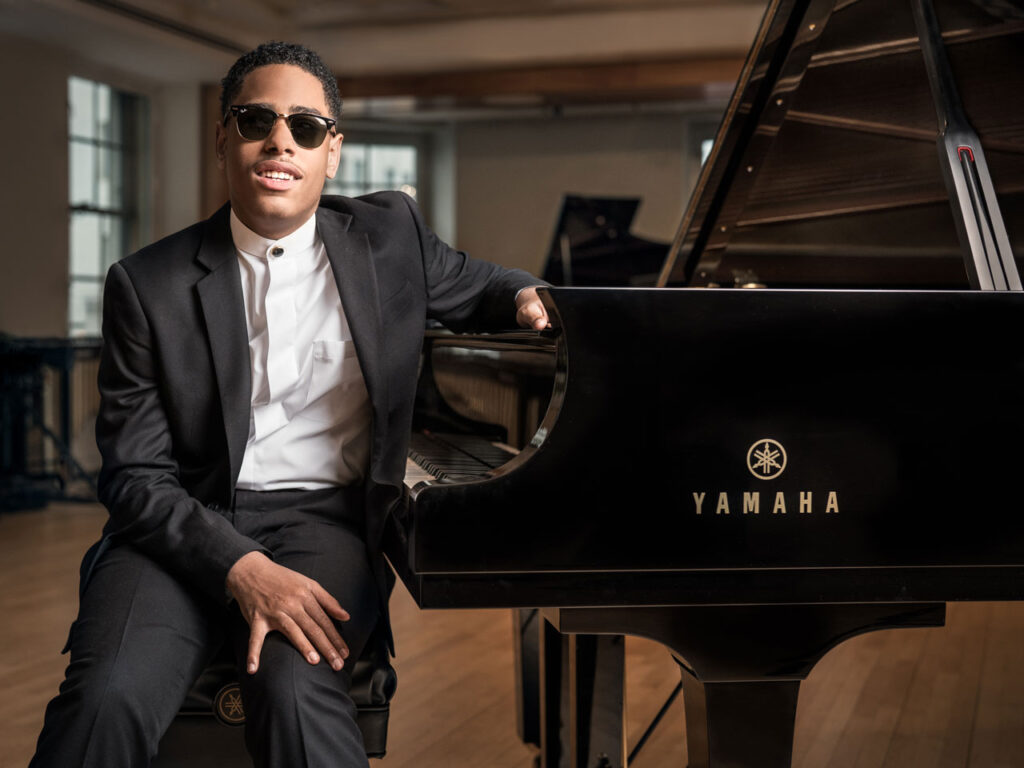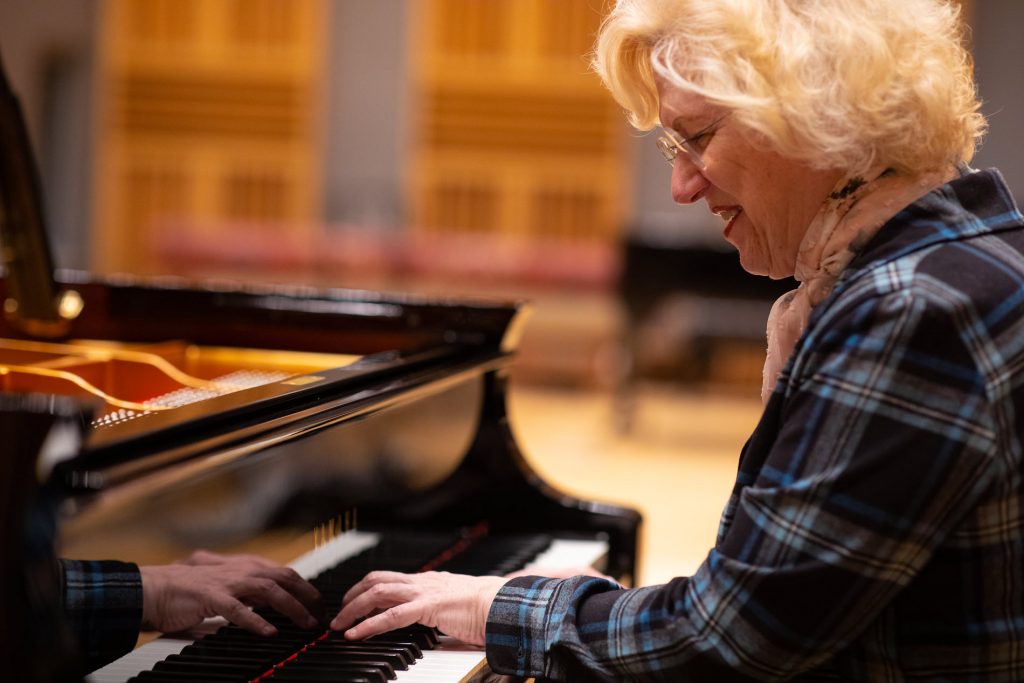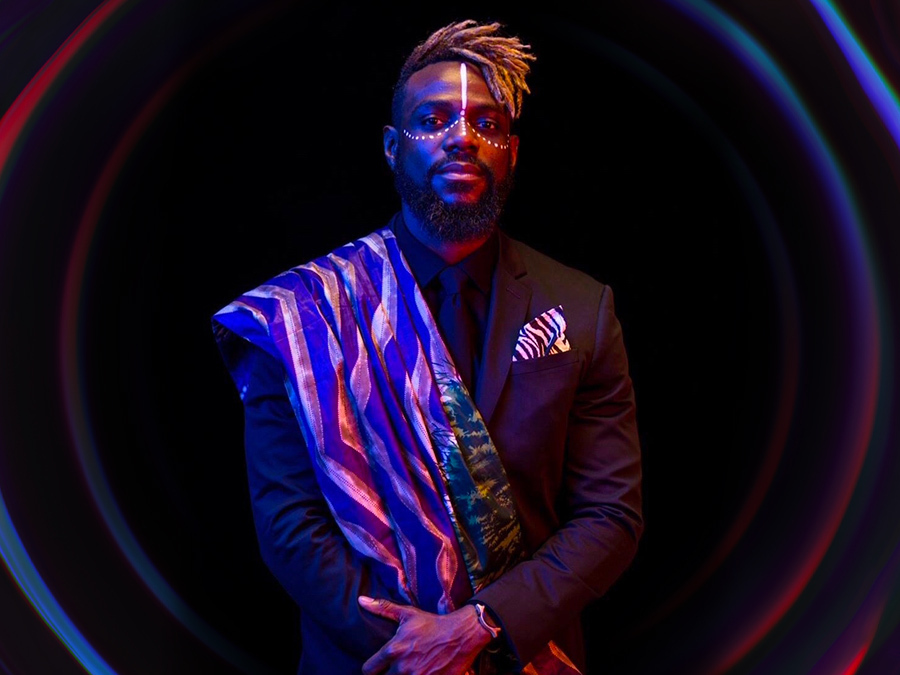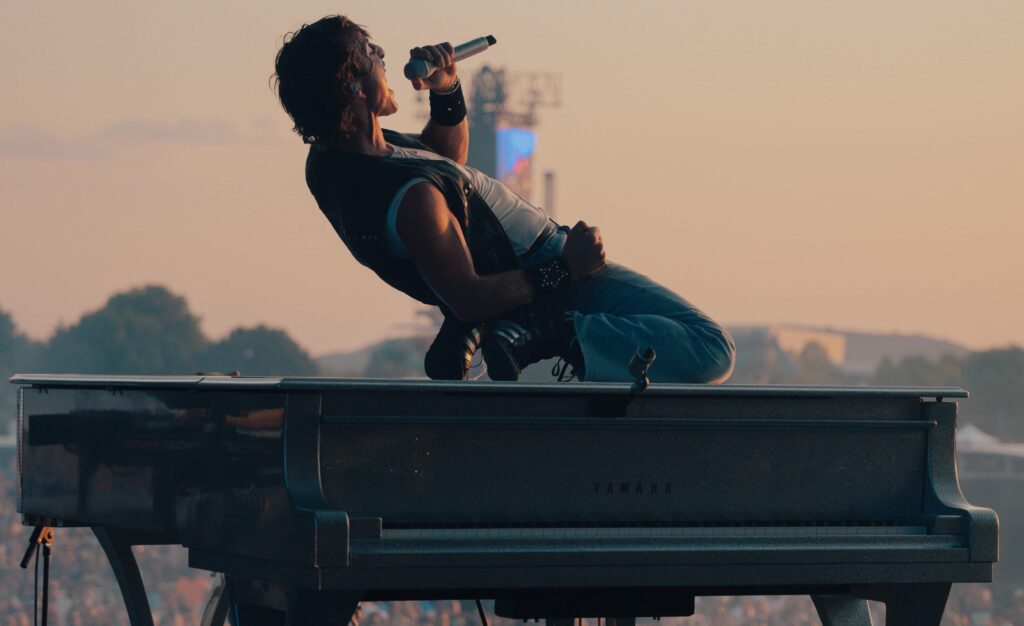Tagged Under:
Eric Wortham Takes the Stage
Adele’s accompanist talks about what it takes to prepare for working with A-list artists.
Yamaha Artist Eric Wortham II is an accomplished pianist, composer, songwriter and producer who has served as accompanist for Adele since 2016, touring worldwide with the multiple Grammy®-winning singer and appearing on her Adele at the BBC and Adele Live in New York City television specials
The Philadelphia-born Wortham has also recorded and toured with a wide variety of pop, jazz and gospel artists, including Seal and Jill Scott (for whom he served as musical director shortly after graduating high school). He’s performed at the Grammy Awards®, the NAACP Image Awards® and the Marian Anderson Award, and has made appearances on The View, Good Morning America, Live! with Kelly and Michael, The Ellen Show, The Jimmy Kimmel Show, The Tonight Show Starring Jimmy Fallon and Saturday Night Live.
In this far-ranging interview, Wortham discusses the strong influence church music has had on his life and the steps he took to prepare for working with A-list artists, as well as his personal take on Black History Month.
How would you describe yourself as a musician?

Music and the piano have become my voice. There are a multitude of languages around the world, and they allow a human being to express their thoughts, feelings, and emotions, but there are certain things that just can’t be expressed. The language of music has allowed me to express those things that I can’t utter with just basic words. So it’s my world, my language. It’s the most accurate version of myself.
What are some of your earliest musical memories?
My dad was a bishop in a church, so gospel music was the first sound I remember hearing. And gospel music is very powerful. Its goal is to lift the spirit of the people who deal with a lot of heaviness in their day-to-day life. Man, it was beautiful growing up! That church background is the cornerstone for me for sure.
When did you first start playing piano?
My first instrument was the drums. I was maybe six years old, and at this one particular church youth convention, I had to sing in the choir, which I didn’t want to do. I wanted to beat the drums, I wanted to bang on stuff.
But my parents made me get on the choir loft, and because I was short, I was standing in the front, watching the organist play. It looked like he was just mashing a series of buttons, like he was nonchalantly smearing his hands on the organ, but I noticed that what he was playing was causing the people to either worship or dance. It was the succession of his notes [that set] the mood for the service. I thought that was a huge responsibility. I just connected with it, and I felt like I could do it.
I have two other sisters, and at that time, they were both taking piano lessons. When I got back from that convention, I started tinkering away [on their piano]. It just came naturally for me. And I fell in love [with piano] within the first couple of days.
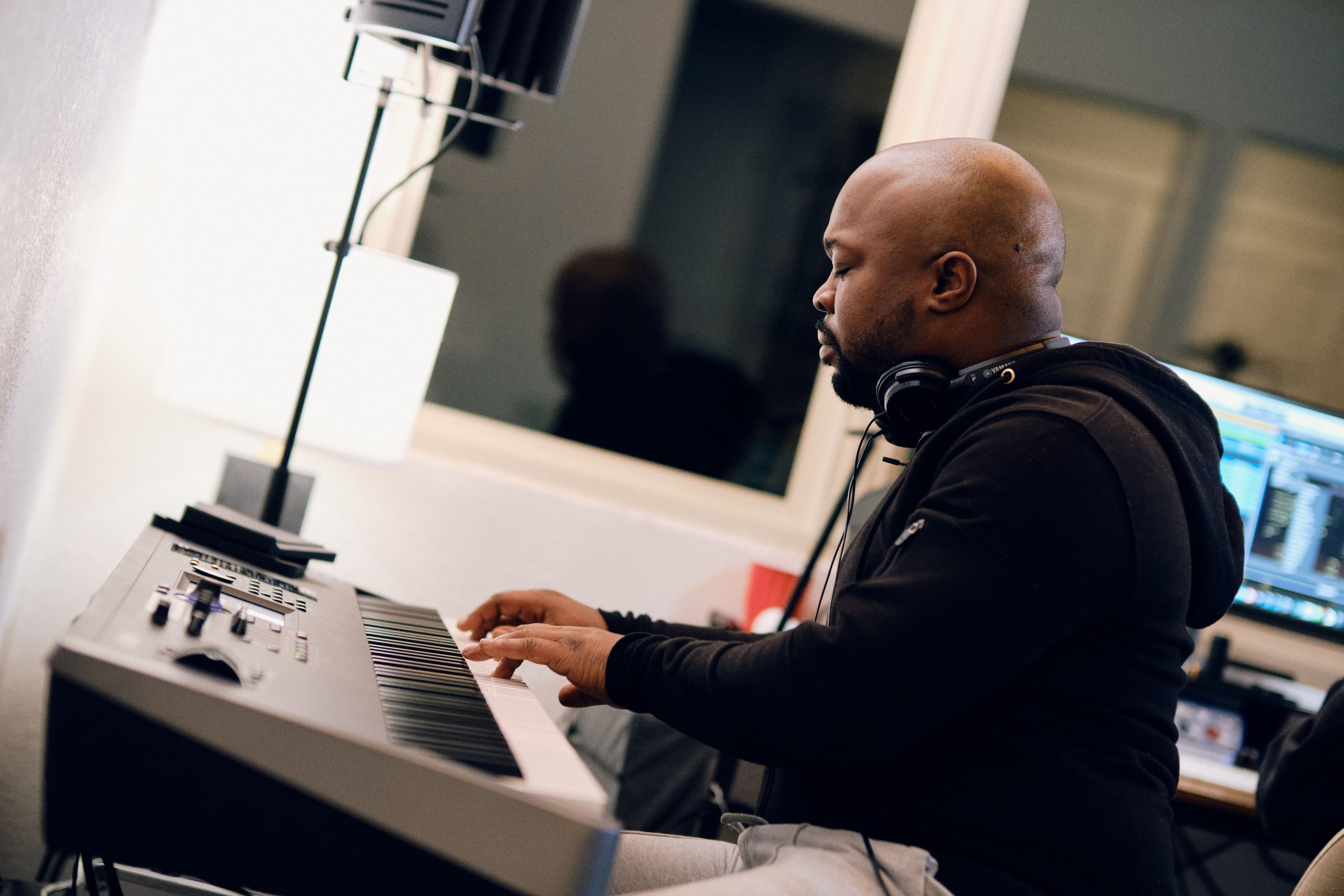
What did you do to prepare yourself to be able to work with A-list talent?
I think the first thing was my desire for excellence. I don’t think you can teach that — it’s just something that’s innate. For me, after I was six years old, my path became very clearly defined and illuminated.
You know the saying, “practice makes perfect”? I had a teacher that said, “perfect practice makes perfect.” You could practice doing the wrong thing and develop a lot of bad habits. But if you practice doing the right thing [over and over again], it’ll become habit. I had great instructors and great mentors, but even [more important was] having the appetite: I was very, very hungry. I was gifted in math and sciences, so I was going to go to the high school for engineering and science in Philadelphia, but instead, I enrolled myself into the High School for the Creative and Performing Arts. The teachers there pushed me to not be complacent: learn all your scales, all your modes, hands separate, hands together, hands opposed; learn your Bach inventions, try to learn them in all 12 keys. [They] guided me in the right direction because I had that desire and I had that hunger.
Over time, you develop confidence in a form of artistry that you must have in order to perform with and stand under the pressures of working with someone like an Adele. And that is trusting your heart, trusting your instincts, trusting your skill set, and also, learning the lyrics to a song and embodying what it means and what it feels. It’s one thing to show off your talent, but it’s about evoking emotion and a feeling, and you’re providing that as a tapestry for an artist of that ilk, because then they’re able to comfortably and confidently do their thing.
How is solo practice different than practicing, playing and performing in a group scenario?

I used to practice four to five hours a day. Then I went to see [Cuban jazz pianist] Gonzalo Rubalcaba play at the Philadelphia Art Museum and he asked me, “Dude, how many hours do you practice?” I said four or five — I thought that would be impressive. He’s like, “Yeah, you’re doing way too many hours.” I was like, why? He said, “When you practice you’re supposed to work on what or where you have a block. You’re not supposed to just rehearse all the things you can do just to impress yourself. You want to start right where there’s that wall and push past that.” So for me, when I’m practicing by myself, I’m not putting in massive amount of hours to just rehearse my own ability. Because then when you get up on this bandstand, you can’t be fresh; you’re just going to keep recycling. So I just spend an hour working on pushing past that wall, and then you start focusing in on other disciplines, [keeping] fresh by practicing in ensemble and duet situations. Learning how to practice is a very important discipline. Learning how to learn is very important.
The scariest thing is to be true and vulnerable to yourself. It takes a lot of bravery, a lot of character and courage. And, honestly, I get so much of that from the artist that I accompany.
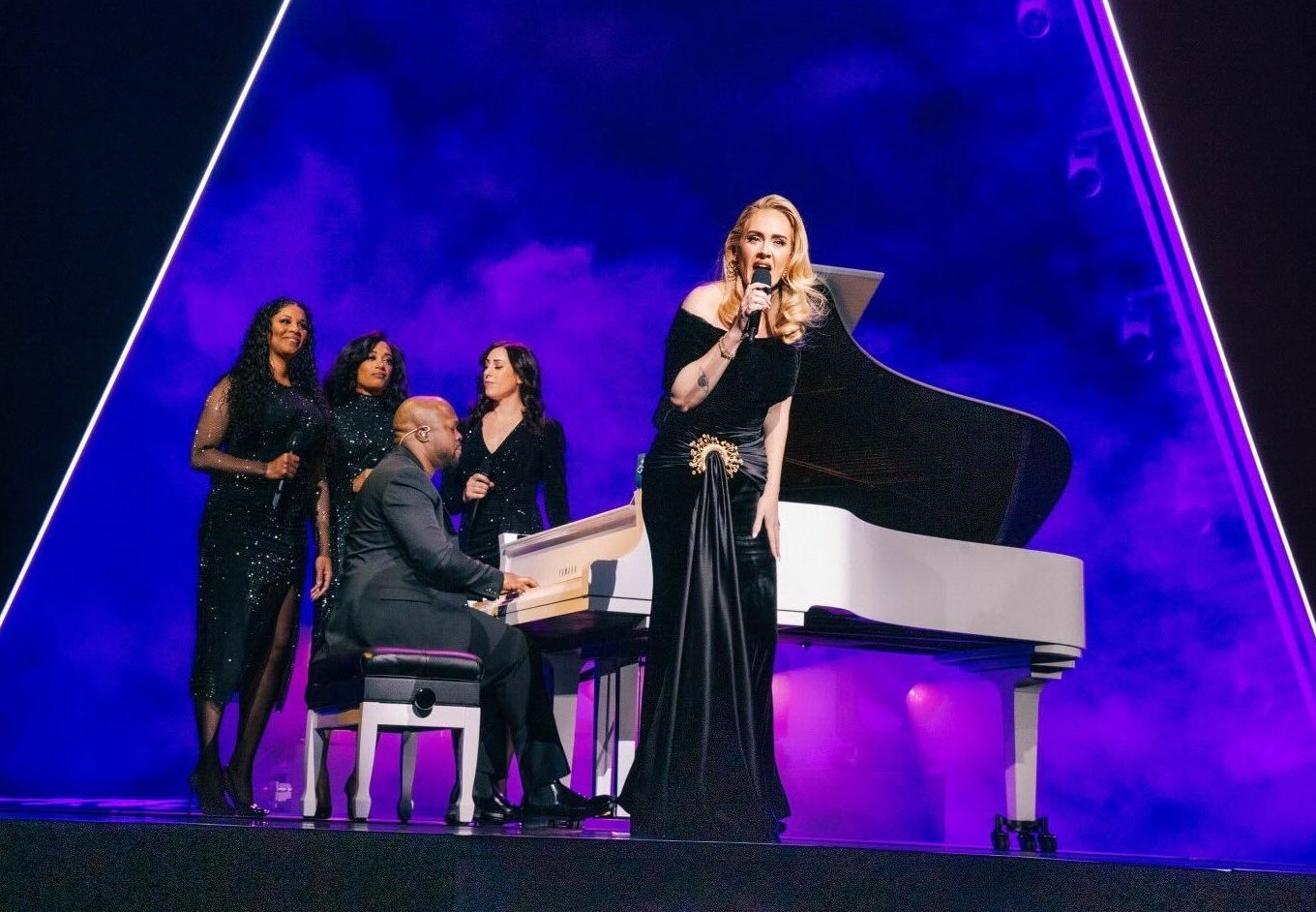
What has it been like working with someone as creative as Adele?
Well, she’s a perfectionist, and she’s a complete musician. That makes my relationship with her extremely easy. [Everything] is crafted and thought out by a musician. It’s music by a musician.
With an artist such as Adele, there’s a certain spirit there, a certain excellence. It’s not a fluke. Trust is everything in any relationship. Establishing the confidence that you can depend on me under any circumstance — that’s what defines the relationship. I like being counted on. I want you to count on me. I want you to have faith and trust in me.
When you’re playing in a band setting, there are more points that have to be locked in; after all, a chain is only as strong as its weakest link. So if the guitar player isn’t feeling it today, no matter how much the rest of the band is trying to lock in and be in sync, well, we still got this. When it’s just me and the singer, that’s like heaven for me: I’m at your disposal. Adele’s show and music are perfect for a piano player because they encompass so much emotion. Yes, there’s a full orchestra [too], but as a pianist, this gig is perfect.
What does Black History Month mean to you?

On some levels, I respect it a great deal, and I respect its gesture towards the community. But I’ve always felt that it was very, very hard to cram Black History into a month. I think people tend to appreciate and remember the things that they want to know, but if you make someone learn something … it’s almost like everything that I was made to learn, I have forgotten.
I personally think that there are things that could be far more impactful to the Black community. I would like to see more of the actual things that would be life-changing, not only to the Black community, but to the human race at large. As long as we see each other as separate, there’s always going to be a divide. That’s the root of so many negative things that have plagued the planet; a lot of the things that plague humanity come from a lack of self-respect, lack of a way to acquire self-respect, a lack of history. So while I appreciate the gesture of Black History Month, I would like to see better efforts.
How has your culture influenced your music?
Growing up in church influenced my music a lot, but the experience of growing up as a Black man in Philadelphia in the early 1980s provided me with a unique outlook on life. I have two great parents who took it upon themselves to make sure that my two sisters and my little brother and I were educated, not just by what the school system was providing, but about the world that we live in, about what the world has progressed from, and ultimately about what human beings are. That provided me with a strong core as I navigated life, because the truth of the matter is that ignorant people treated me ignorantly, while kind and loving people treated me lovingly. I do believe that we are like plants: You feed us negativity, guess what’s going to happen? We are going to be horrible people. But if you give us love and opportunity and positive virtues, that’s what you get in return. If you give whoever’s listening something true and honest and healthy and spiritually edifying, it makes you feel good, makes you want to dance.
If I can provide that to my listener, I am leaving a piece of me behind that is good, and we all want to be remembered for something. I don’t want to contribute to humanity in a negative way; I want to contribute in a positive way. When looking at the history of what was done in this country to men and women that wore my skin, I could easily be angry. It’s very easy to be angry and have that anger fester and turn into an appetite for more anger, all because of the hate that happened.
But I had parents that taught me that we wrestle not against flesh and blood, but against principalities and evil spirits, that it can happen to you. And the fight that you want to be on is a fight on the side of right. Just find the root of the tree and stand for what’s right.
Photo credit [stage]: Raven B. Verona @ravieb
For more information, visit www.yamaha.com/artists/ericworthamII.html









